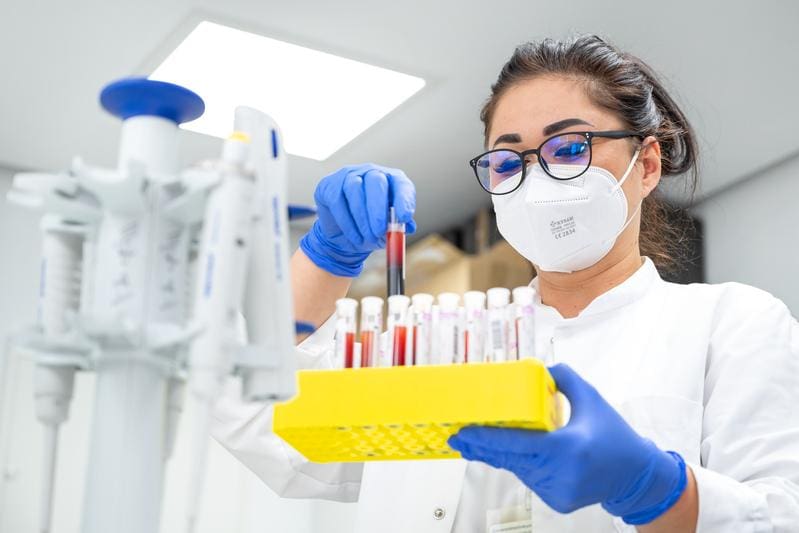Biospecimens: More than 10,000 patients support research at the University Medical Center Halle
At the University Medical Center Halle , more than 10,000 patients have already given their consent for their health data and biosamples to be used for medical research purposes. This enables significant advances in the early detection, diagnosis and treatment of diseases. The basis is the broad consent procedure, which allows broad consent to the use of data and samples.
The 10,000th participant, a 72-year-old pensioner from Mansfeld-S├╝dharz, sees his contribution as a small but important piece of the puzzle for science. Before an eye treatment, he agreed without hesitation after being informed of the possibility at the Central Patient Admission. His positive experience with the thorough treatment at the University Hospital strengthened his decision. Participation brings neither risks nor disadvantages, and the potential benefits for disease research are motivating.

The collected data and biosamples provide a valuable basis for research projects. A specially established data integration centre bundles and harmonises the data so that it can be used by researchers regionally and nationally. The milestone of 10,000 approvals marks a solid basis for nationwide projects. Around three-quarters of adult inpatients who are admitted via the Central Patient Admission Department agree to participate, which corresponds to about a third of all inpatients ŌĆō and the trend is rising.
A special feature is the combined collection of health data and biosamples. Since mid-2023, the University Medical Center Halle has been operating a biobank in routine operation, which has already processed 12,000 blood samples. This results in 65,000 blood plasma and 10,500 DNA samples as well as tissue samples. The linking of diagnostic and treatment data with biospecimen analyses makes it possible to investigate individual disease progression, pre-existing conditions and the influence of therapies in more detail.
The broad consent procedure allows patients to decide separately about the use of their data, biosamples, health insurance data or a new contact. The data is stored encrypted to ensure anonymity and consent can be withdrawn at any time. Developed as part of the Medical Informatics Initiative, the method creates a uniform basis for research. The willingness of patients strengthens the hope for better medical solutions for future generations.
Read Also:
Organoid biobank created from head and neck tumors – MedLabPortal
Integrated Biobank Jena (IBBJ) conducts Europe-wide unique proficiency test – MedLabPortal
Editor: X-Press Journalistenb├╝ro GbR
Gender Notice. The personal designations used in this text always refer equally to female, male and diverse persons. Double/triple naming and gendered designations are used for better readability. ected.




